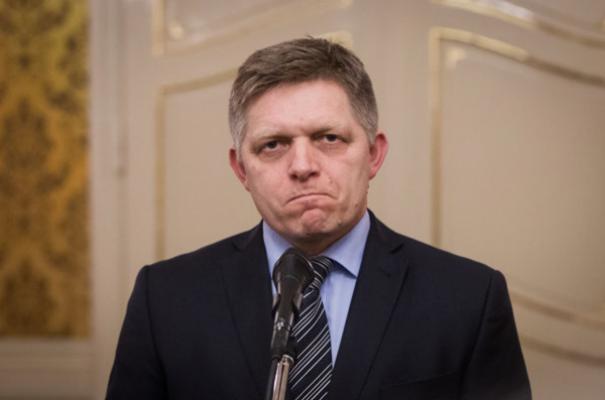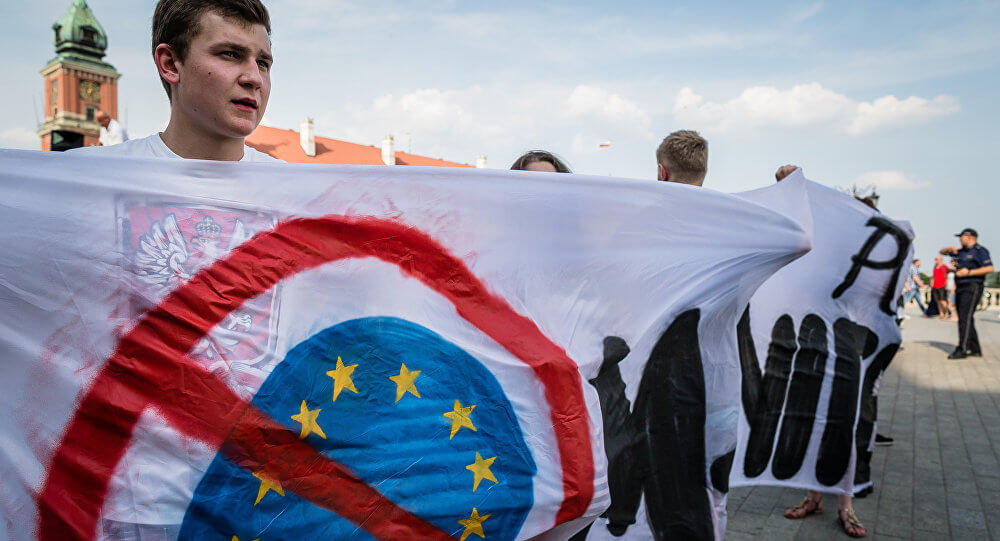Hungary will hold a referendum on October 2 to decide if the country will further accept the EU’s mandatory migrant quota system. Prime Minister Viktor Orban, who initiated the decision, earlier said a “no” vote would be in favor of Hungary’s independence.
The move was announced by the office of Hungarian President Janos Ader on Tuesday. “As president of the republic I decree that the referendum will be held on October 2,”read a statement from Ader.
The presidential office added that the people of Hungary will be asked one question at the referendum: “Do you want the European Union to prescribe the mandatory settlement of non-Hungarian citizens in Hungary even without the consent of Parliament?”
Antal Rogan, head of the prime minister’s cabinet, welcomed the move.
“Hungarian citizens … can say whether they support or reject Brussels’ immigration policy,” he said. “We believe that only Hungarians, not Brussels, can decide who we want to live with in Hungary.”Hungarian PM Orban announced plans to call a referendum on mandatory migrant quotas proposed by the EU in February. Orban added that those who choose not to back the EU’s proposal and reject the plan would be supporting Hungary’s independence.
“The EU has no right to make decisions that could change the lives of people without asking them,” Orban said at the time, adding that a “no” vote would be “in favor of Hungary’s independence and rejecting the mandatory settlement plan.”
In June the Prime Minister’s Office issued a statement saying that the referendum “regarding the mandatory settlement quotas is not aimed against the EU, but is, in actual fact, a good example of how to consult with the electorate on an issue of great significance.”
The goal of the European Commission’s proposal on migrant quotas is to redistribute the weight of the refugee crisis from countries such as Greece by introducing automatic asylum quotas for each EU member state. The countries that refuse would face mandatory payments.
A country’s quota would depend on its national population and wealth. If a nation found itself handling more than 50 percent above its share, it would be permitted to relocate people elsewhere within the bloc.
However, a mandatory quota for the resettlement of migrants and refugees has long been rejected by the Hungarian government. In September 2015, in an attempt to prevent migrants from illegally crossing into Hungary, the government decided to erect a fence on the border with Serbia. It also introduced punishments of up to three years in prison for those crossing the border illegally or damaging the barrier.
However, the four-meter-high, razor-wire fence hasn’t stopped thousands of illegal migrants from forcing their way into the country. Around 400,000 migrants and refugees arrived in Hungary in 2015 before the fence was erected, according to reports in Hungarian media.
In 2015, over 1 million asylum seekers arrived in Europe, according to data from the International Organization for Migration. Most came from Syria, where a civil war has claimed the lives of 250,000 people and displaced 12 million others since 2011, UN figures show. The asylum seekers also come from Afghanistan, Iraq, Libya, Eritrea, Mali and other countries.











